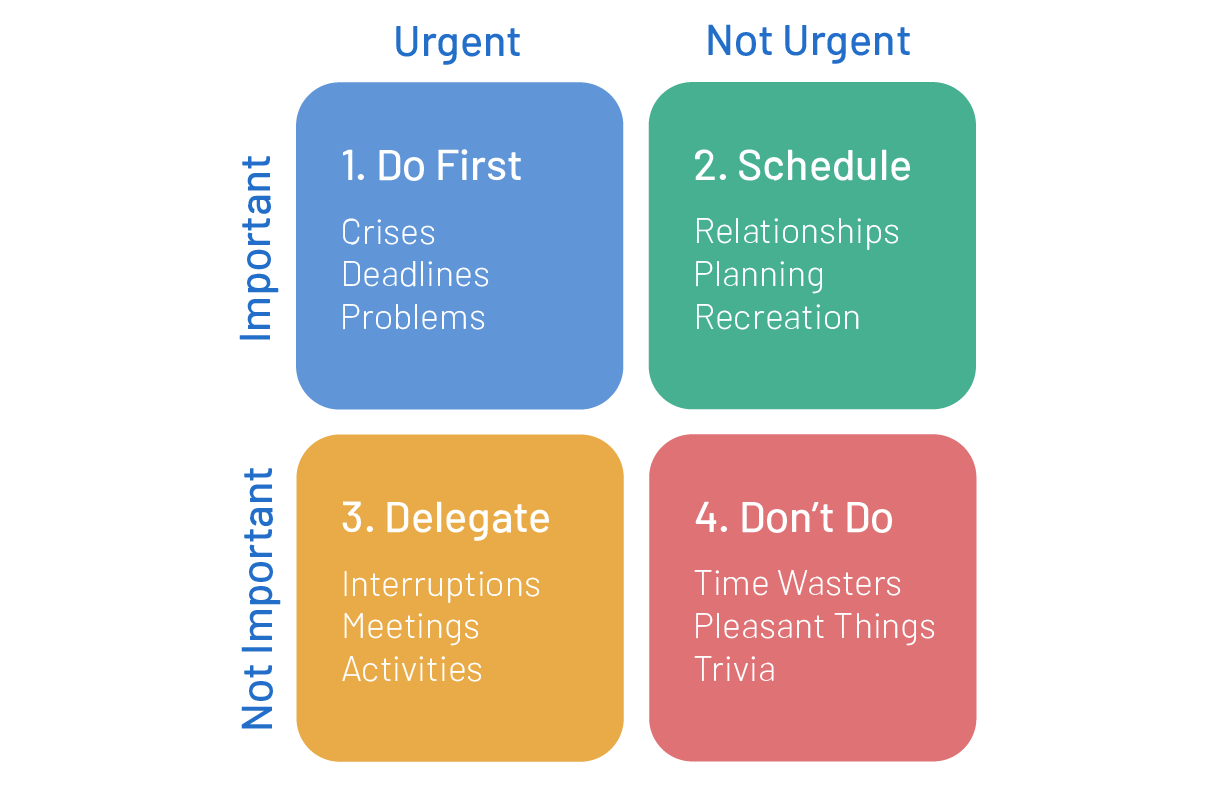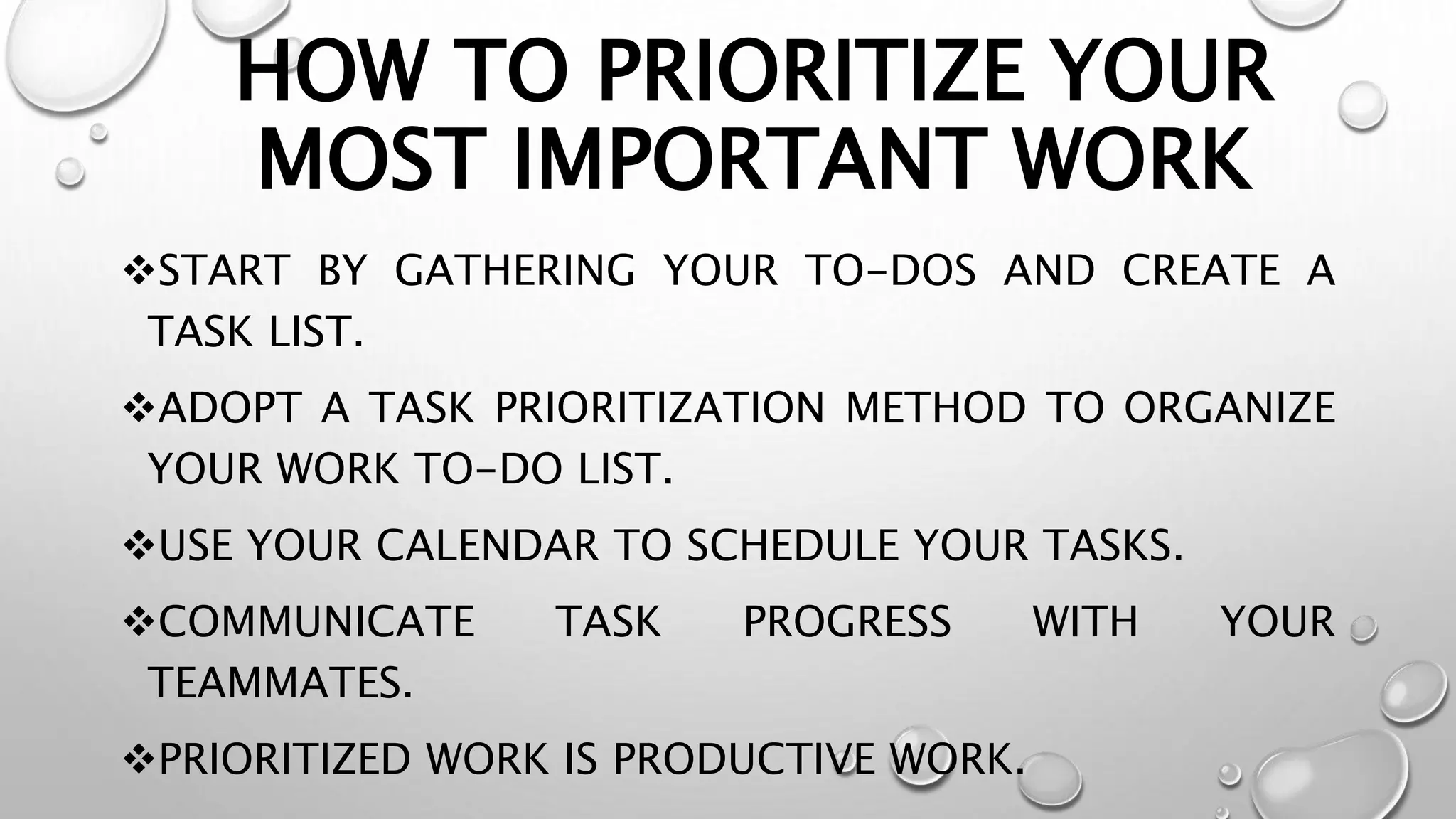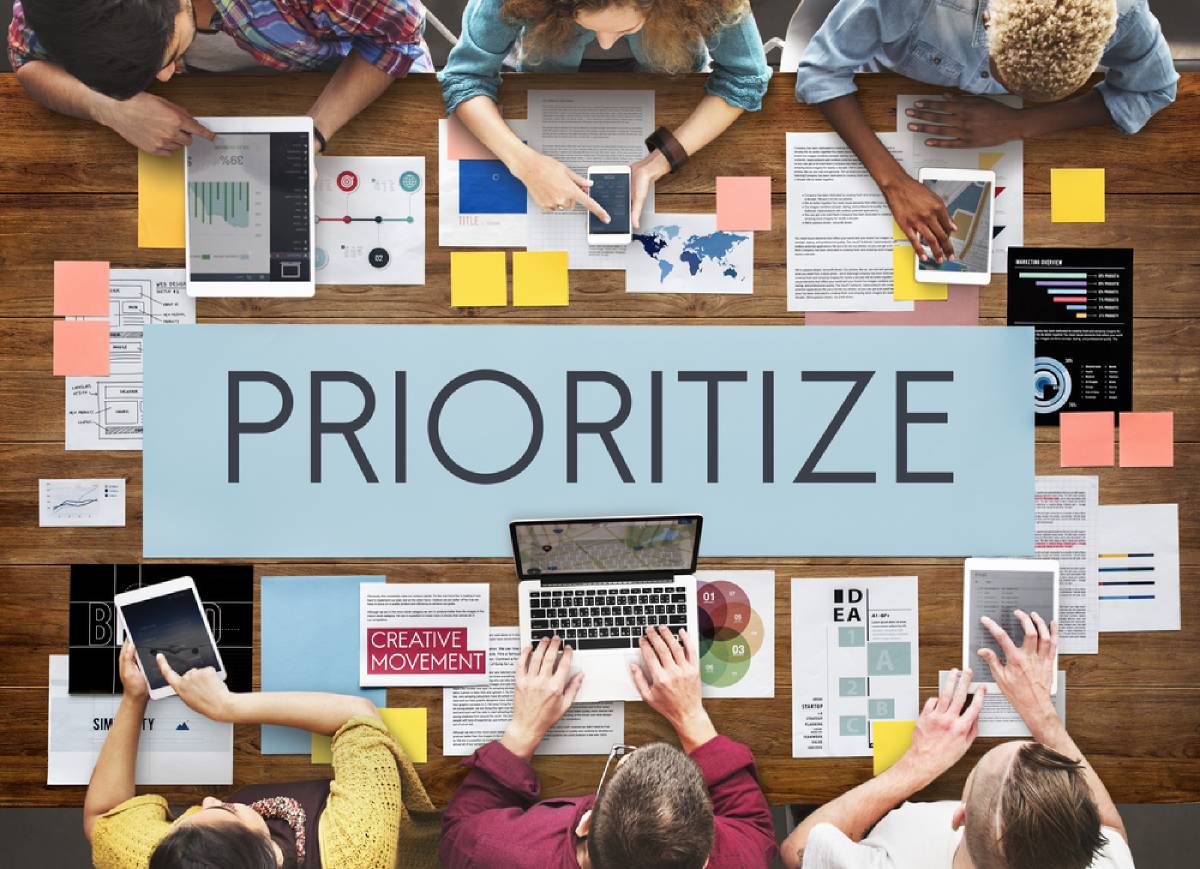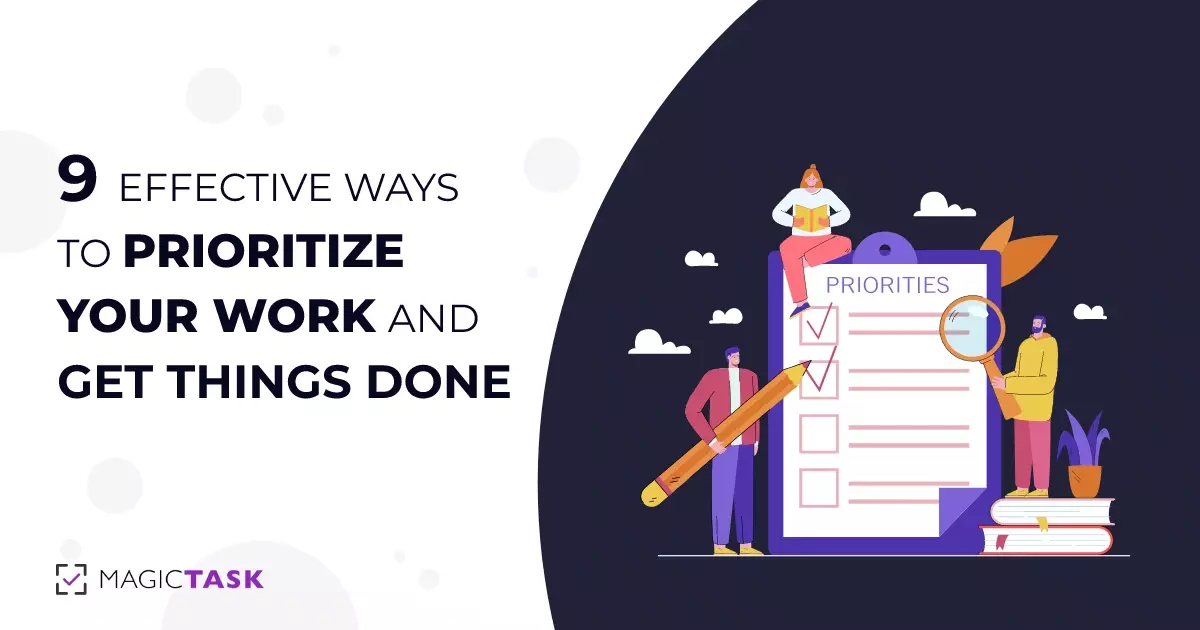What Steps Should To You Take To Prioritize Your Workload

Feeling overwhelmed by a mountain of tasks? You're not alone. Many professionals struggle with prioritizing their workload effectively, leading to stress, missed deadlines, and decreased productivity. Mastering workload prioritization is a skill that can significantly impact your professional success and overall well-being.
The ability to strategically manage tasks, differentiating between urgent and important, is crucial in today's fast-paced work environment. Effective prioritization allows individuals to focus their time and energy on activities that generate the most value and contribute to achieving key objectives.
Understanding the Urgency-Importance Matrix
One of the most widely used frameworks for prioritization is the Eisenhower Matrix, also known as the urgency-importance matrix. This tool, popularized by former U.S. President Dwight D. Eisenhower, categorizes tasks into four quadrants based on their urgency and importance.
Quadrant 1: Urgent and Important
These tasks require immediate attention. Examples include crises, pressing problems, and deadline-driven projects. Delegate when possible to avoid burnout.
Quadrant 2: Important, but Not Urgent
Focus on these tasks to achieve long-term goals. This category includes planning, relationship building, and preventative measures. Schedule time to work on these regularly.
Quadrant 3: Urgent, but Not Important
These are distractions that prevent you from focusing on what truly matters. Identify and minimize these interruptions, often caused by others. Learn to politely decline or delegate.
Quadrant 4: Neither Urgent nor Important
These activities are time wasters that should be eliminated. Examples include mindless scrolling and excessive socializing at work. Minimize time spent on these activities to reclaim valuable work hours.
Practical Steps for Effective Workload Prioritization
Beyond the Eisenhower Matrix, several other steps can help streamline your workload and improve focus.
First, create a comprehensive list of all tasks, big and small. This provides a clear overview of everything on your plate.
Next, estimate the time required for each task. This helps you allocate sufficient time and identify potential bottlenecks.
Then, identify deadlines and dependencies for each task. Understanding deadlines helps determine urgency. Dependencies highlight tasks that must be completed before others.
After that, assess the value or impact of each task. Which tasks contribute most directly to your goals and objectives?
Following that, rank tasks based on a combination of urgency, importance, and value. Consider using a scoring system to quantify prioritization.
Now, schedule tasks into your calendar, allocating specific time slots for each. Treat these appointments as non-negotiable.
Lastly, regularly review and adjust your priorities as needed. Circumstances change, and priorities may shift. Flexibility is key.
Leveraging Technology for Prioritization
Numerous digital tools can aid in workload prioritization. Task management apps like Asana, Trello, and Monday.com offer features for creating lists, assigning tasks, setting deadlines, and tracking progress.
Calendar apps like Google Calendar and Outlook Calendar allow you to schedule tasks and set reminders. Project management software can help manage complex projects with multiple stakeholders.
The Human Element: Saying No and Setting Boundaries
Prioritizing your workload effectively also requires strong communication skills and the ability to set boundaries. Learning to say "no" to requests that don't align with your priorities is essential.
Communicating your workload and priorities to colleagues and supervisors can prevent misunderstandings and ensure that everyone is on the same page. Don't hesitate to ask for clarification or support when needed.
Ultimately, effective workload prioritization is an ongoing process that requires self-awareness, discipline, and a willingness to adapt. By implementing these strategies, you can gain control of your time, reduce stress, and achieve your professional goals.


















